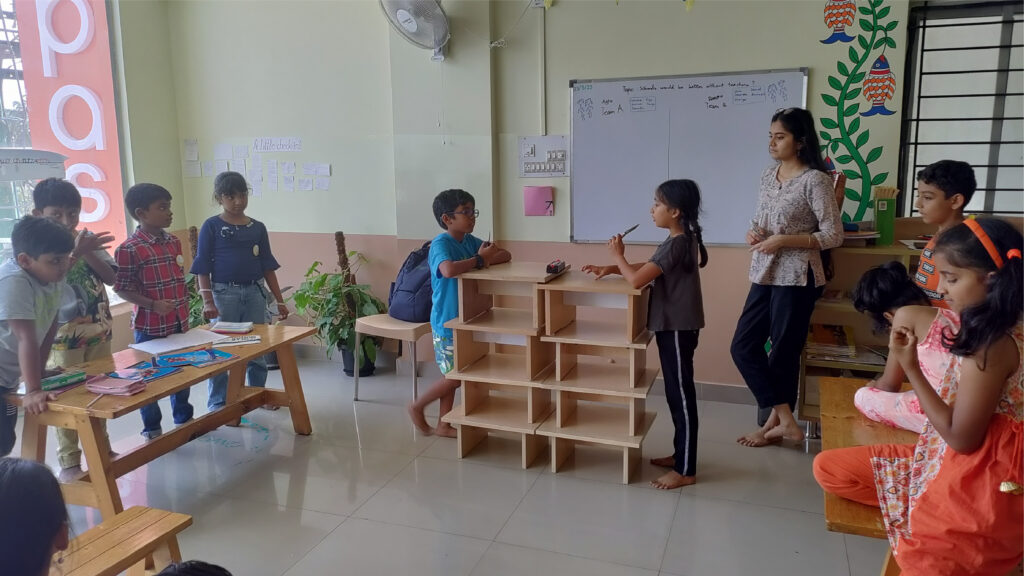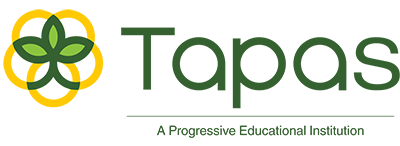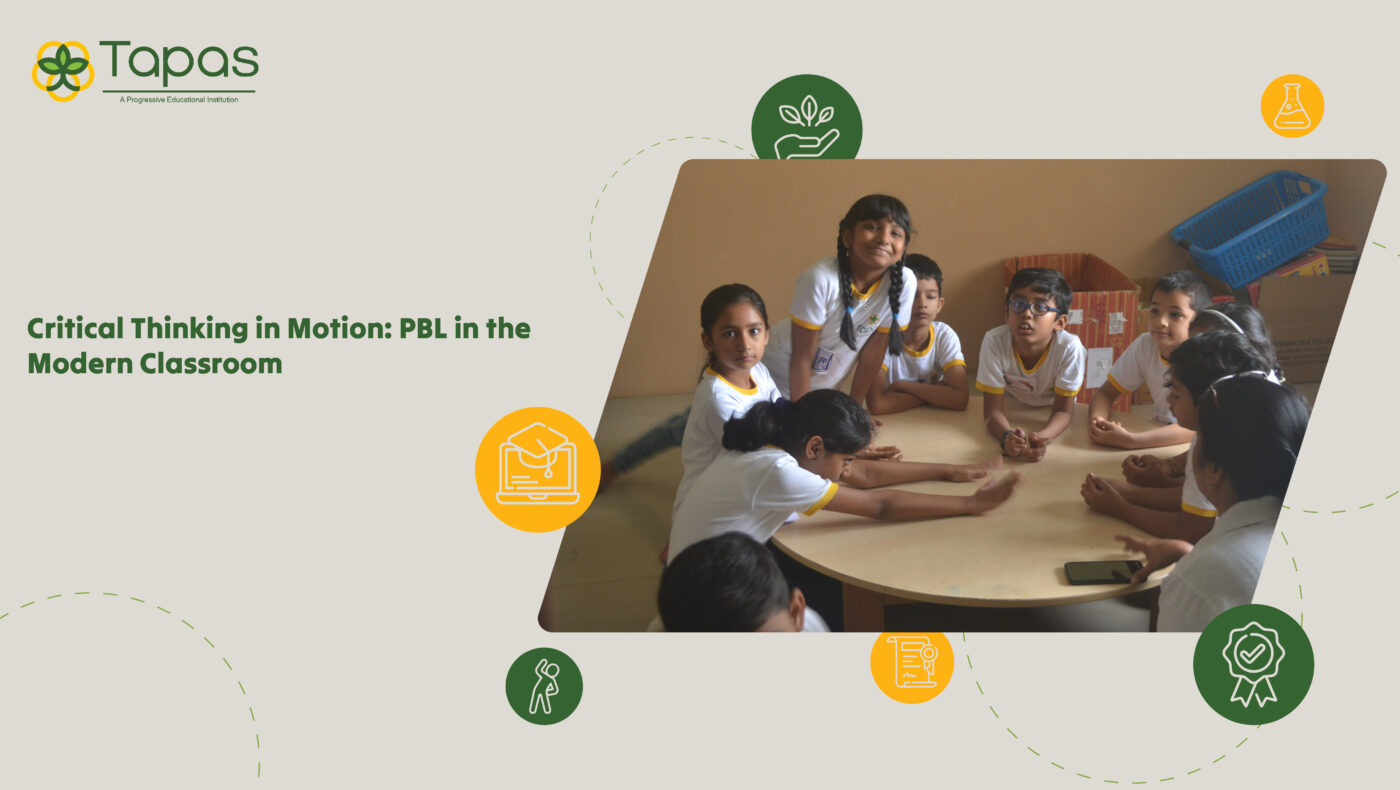Critical Thinking in Motion: PBL in the Modern Classroom
Imagine stepping into a classroom where every student is deeply engaged, not just listening passively but actively participating, questioning, and solving complex problems. This is not a distant dream but a tangible reality made possible through active learning approaches. But why is this shift crucial in today’s educational landscape? As we navigate an ever-changing world, how can we ensure our students are not just recipients of information but critical thinkers capable of shaping the future? The answer lies in embracing active learning approaches, a key to unlocking the full potential of our learners.
Tapas Education stands at the forefront of educational innovation, revolutionizing the modern classroom with its pioneering integration of Project-Based Learning (PBL). By championing innovative teaching methods, Tapas Education not only enriches the learning experience but also ensures that critical thinking skills are at the heart of student development. This commitment to fostering an environment where critical inquiry and real-world problem-solving thrive demonstrates Tapas Education’s dedication to preparing students for the complexities of the future with confidence and creativity.
The Essence of PBL and Its Importance
Project-Based Learning (PBL), often intertwined with Problem-Based Learning, is a dynamic classroom approach where students gain knowledge and skills by working for an extended period to investigate and respond to complex questions, problems, or challenges. This methodology transcends traditional learning boundaries, fostering an interactive learning environment that encourages students to explore real-world issues and engage in meaningful, collaborative problem-solving. PBL’s significance lies in its ability to cultivate critical thinking, creativity, and communication, preparing students to navigate and contribute to the world effectively.
Project-Based Learning (PBL), a cornerstone among modern classroom strategies, actively engages students in analysis, problem-solving, and decision-making. Through PBL, learners tackle real-world problems, requiring them to dissect issues, identify solutions, and make informed decisions. This hands-on approach not only sharpens critical thinking skills but also equips students with the ability to apply these competencies beyond the classroom. By mirroring real-life challenges, PBL ensures that the skills developed are directly transferable to real-world contexts, making learning both relevant and impactful.
Tapas Education seamlessly incorporates Project-Based Learning (PBL) into its curriculum, intertwining PBL and critical thinking at every educational level. By embedding PBL methodologies throughout its programs, Tapas Education ensures that students are consistently engaged in tasks that require deep analysis, problem-solving, and evaluative judgment. This approach not only fosters a dynamic learning environment but also cultivates a culture where critical thinking is nurtured. Students are empowered to question, explore, and innovate, embodying the essence of active and reflective learners prepared for the complexities of the modern world.

Critical Thinking in Motion: The Tapas Education Approach
- Collaborative Projects: Tapas Education uses innovative teaching methods to design collaborative projects that require students to work in teams, simulating real-world working environments and fostering a sense of community and shared responsibility.
- Real-World Problem Solving: By integrating real-world problem-solving into the curriculum, Tapas Education ensures that students apply what they learn in meaningful contexts, enhancing their ability to think critically and creatively.
- Technology Integration: Leveraging the latest technology, Tapas Education incorporates digital tools and resources into PBL, facilitating research, collaboration, and presentation skills under active learning approaches.
- Interdisciplinary Learning: Tapas Education promotes interdisciplinary learning by connecting projects across different subjects, encouraging students to see the interconnections between disciplines through innovative teaching methods.
- Student-Led Learning: Emphasizing active learning approaches, Tapas Education empowers students to take the lead in their learning journey, fostering independence, self-confidence, and critical thinking skills.
- Continuous Feedback and Reflection: Through continuous feedback and opportunities for reflection, Tapas Education encourages students to critically assess their work and learning process, promoting growth and deeper understanding.
The integration of technology and innovative tools plays a pivotal role in facilitating Project-Based Learning (PBL) and enhancing critical thinking within Tapas Education’s curriculum. By harnessing cutting-edge resources, Tapas Education exemplifies modern classroom strategies that significantly elevate the learning experience. Digital platforms and tools enable students to access vast information databases, collaborate in real time regardless of location, and utilize software that simulates real-world scenarios. This technology-infused approach to PBL not only streamlines the process of investigation and project management but also encourages students to think critically about the information they encounter and the solutions they devise. Virtual reality (VR), for instance, immerses students in environments that demand problem-solving and decision-making skills, directly linking classroom learning with real-world applications. Similarly, coding and design software tools foster creativity and technical skills, preparing students for future challenges. Tapas Education’s strategic use of technology thus amplifies the impact of PBL on critical thinking, ensuring that students are well-equipped to navigate and contribute to the digital age.
Assimilating a well-thought-out project for the thinking mind in a Tapas classroom
Incorporating caterpillar-making activities using pipe cleaners into the curriculum for 2 to 4-year-olds, known affectionately as Sparrows, offers a multifaceted educational experience that transcends traditional learning paradigms. This engaging craft is strategically designed to foster critical thinking skills, a cornerstone of modern education, by encouraging young learners to navigate through decisions, problem-solving, and creative solutions during the construction process.
The activity begins with the provision of a diverse array of brightly coloured pipe cleaners, allowing children to exercise decision-making as they choose colours that appeal to their preferences for their caterpillar’s body. This selection process not only enhances their colour recognition skills but also sets the stage for an early understanding of aesthetics and personal expression.
As the learners engage in bending and connecting the pipe cleaners to form the caterpillar’s segmented body and antennae, they are introduced to basic engineering concepts. This process demands precise hand-eye coordination, fostering fine motor skills development, and introduces young minds to the concept of sequences and patterns, laying the foundational blocks for mathematical reasoning.
The tactile sensation of manipulating the soft, flexible pipe cleaners offers a sensory exploration, enriching the learning experience. Attaching googly eyes to their creations, the children delve into the realm of imaginative play, assigning personalities to their caterpillars. This aspect of the activity promotes emotional intelligence and empathy, as children begin to envision the world from perspectives other than their own.
By engaging in this caterpillar-making activity, Sparrows are not just crafting; they are critically thinking, solving problems, and making choices. This approach aligns seamlessly with the objectives of modern education, aiming to cultivate curious, independent thinkers prepared to navigate the complexities of the future. Through such hands-on, creative activities, young learners are equipped with a toolkit of skills essential for academic success and personal growth.
Overcoming Challenges with PBL
Educators venturing into Problem-Based Learning (PBL) often confront a trio of common challenges that can impede its successful integration into the curriculum. First, resource limitations stand out as a significant barrier. PBL necessitates a variety of materials, technologies, and access to information that may not be available in all educational environments, requiring educators to be resourceful and sometimes inventive in their approach.
Time constraints further complicate PBL implementation. This learning strategy demands considerable preparation, in-depth facilitation, and extended project timelines that can strain conventional class schedules and academic calendars. Educators must balance the depth of learning with the breadth of curriculum coverage, often necessitating adjustments to teaching methods and time management strategies.
Lastly, assessment difficulties present a notable challenge. Traditional grading systems may not align well with the collaborative, interdisciplinary, and process-focused nature of PBL. Educators are tasked with developing alternative assessment methods that accurately reflect students’ understanding, skills development, and individual contributions to group projects. These challenges call for a flexible, innovative approach to teaching and learning, encouraging educators to seek continuous professional development and collaborate to overcome the hurdles associated with PBL.
Tapas Education has developed a comprehensive suite of solutions and support mechanisms to address the challenges educators face when implementing Problem-Based Learning (PBL). Here’s how Tapas Education assists educators in overcoming these hurdles:
- Professional Development: Tapas Education offers targeted professional development workshops and seminars focused on PBL. These sessions equip educators with strategies for effective planning, execution, and assessment of PBL projects, ensuring they can navigate time constraints and resource limitations efficiently.
- Resource Kits: To tackle the issue of resource limitations, Tapas Education provides educators with PBL resource kits. These kits contain a variety of materials and tools necessary for executing PBL projects, including access to digital resources and physical materials that can be used in a range of educational settings.
- Online Platforms: Recognizing the importance of technology in facilitating PBL, Tapas Education has developed online platforms that serve as repositories of information, collaboration spaces, and project management tools. These platforms enable educators and students to access resources, collaborate on projects, and track progress in real-time, addressing the challenges of time management and resource accessibility.
- Customized Assessment Tools: To simplify the assessment process, Tapas Education offers customized assessment tools that align with the objectives of PBL. These tools help educators evaluate students’ critical thinking, collaboration, and problem-solving skills more effectively, providing clear metrics for success in a PBL environment.
- Community Support: Tapas Education fosters a community of educators who are implementing PBL, providing a forum for sharing experiences, challenges, and solutions. This peer support network encourages collaboration and exchange of best practices, empowering educators to overcome common obstacles together.
Through these initiatives, Tapas Education ensures that educators are well-supported in their journey to integrate PBL into their teaching, making the process more manageable and effective in fostering critical thinking and problem-solving skills among students.
The Future of Education: PBL and Beyond
The future role of Project-Based Learning (PBL) in education is poised for significant expansion and deeper integration, driven by ongoing trends and the evolving needs of the 21st-century learner. PBL’s emphasis on real-world applications, critical thinking, collaboration, and technology integration aligns perfectly with the skills required in today’s rapidly changing world. Here are several key predictions for PBL’s future role in education:
- Greater Integration Across Disciplines: PBL will increasingly be used not just as a teaching method for specific subjects but as a holistic approach that crosses disciplinary boundaries. This integration will foster a more interconnected understanding of knowledge, mirroring the complexity of real-world problems and solutions.
- Emphasis on Soft Skills Development: As the global economy continues to evolve, there will be a greater emphasis on soft skills such as critical thinking, problem-solving, teamwork, and communication. PBL naturally cultivates these skills, making it an essential strategy for preparing students to thrive in future workplaces.
- Increased Use of Technology: The integration of technology in PBL will continue to grow, leveraging digital tools, platforms, and resources to enhance collaboration, research, and project management. This will also include the use of emerging technologies such as artificial intelligence, virtual reality, and augmented reality to create immersive learning experiences.
- Personalized Learning Experiences: PBL allows for personalized learning paths where students can pursue projects based on their interests and strengths, leading to more engaged and motivated learners. As education continues to shift towards student-centred models, PBL will be key in facilitating these personalized experiences.
- Global Collaboration Projects: With the ease of digital communication, PBL will increasingly involve projects that bring together students from different parts of the world to work on global challenges. This will not only enhance cultural understanding and empathy but also prepare students to work in a globalized workforce.
- Focus on Sustainability and Social Responsibility: Reflecting growing concerns over environmental sustainability and social equity, PBL in the future will likely focus more on projects that encourage students to address these critical issues, fostering a sense of responsibility and activism among the next generation.
PBL is set to become an even more integral part of education, responding to the needs of 21st-century learners and preparing them for the challenges and opportunities of the future. Its role in developing a wide range of essential skills, along with its adaptability to new technologies and global perspectives, positions PBL as a key educational strategy for the years to come.
Tapas Education’s commitment to staying at the forefront of educational innovation is unwavering, reflecting a deep understanding of the dynamic nature of learning and the evolving needs of students and educators alike. Recognizing that the future of education demands flexibility, creativity, and a forward-thinking approach, Tapas Education is dedicated to constantly updating its offerings to meet these future demands. Here’s how Tapas Education emphasizes this commitment:
- Continuous Curriculum Development: Tapas Education is relentless in its pursuit of curriculum development that incorporates the latest educational research, technology, and pedagogical strategies. This ensures that learning materials are not only relevant but also engaging and effective in fostering critical thinking and problem-solving skills.
- Investment in Technology: Understanding the critical role of technology in modern education, Tapas Education invests in the latest digital tools and platforms. This investment supports interactive learning experiences that cater to the needs of digital natives, making learning more accessible, personalized, and impactful.
- Professional Development for Educators: Recognizing that the success of innovative teaching methods depends greatly on the skills and enthusiasm of educators, Tapas Education offers ongoing professional development opportunities. These programs are designed to keep educators at the cutting edge of educational strategies, ensuring they are well-equipped to inspire and engage students.
- Partnerships with Educational Innovators: Tapas Education actively seeks partnerships with other leaders in educational innovation. These collaborations bring fresh perspectives and new ideas into their offerings, ensuring that they remain at the forefront of educational best practices.
- Adaptability to Emerging Educational Needs: Tapas Education maintains a flexible approach to educational delivery, adapting quickly to changes in the educational landscape and the broader world. This adaptability means that Tapas Education is always ready to meet emerging challenges and seize new opportunities for learning enhancement.
- Focus on Global and Ethical Learning: In preparation for the global challenges of the future, Tapas Education integrates global awareness and ethical considerations into its curriculum. This approach prepares students not just academically but also as informed and compassionate global citizens.
By prioritizing innovation and adaptability, Tapas Education ensures that its learners are equipped with the skills, knowledge, and mindset needed to thrive in an uncertain future. Tapas Education’s commitment to educational excellence and innovation positions it as a leader in shaping the future of learning.
Learn More…
Educators, administrators, and educational institutions are at a pivotal moment in shaping the future of learning. Embracing Project-Based Learning (PBL) represents a transformative step towards cultivating critical thinking skills in students, preparing them for the complexities of the 21st-century world. PBL not only enhances student engagement and motivation but also fosters an environment where critical thinking, problem-solving, and collaboration flourish. It’s an opportunity to move beyond traditional teaching methods and embrace a more dynamic, student-centered approach to education.
Tapas Education is at the forefront of this educational revolution, offering a wealth of resources, workshops, and programs designed to support the integration of PBL into your curriculum. Whether you’re new to PBL or looking to enhance your existing practices, Tapas Education provides the tools, guidance, and support necessary to make the transition smooth and effective.
We invite educators, school leaders, and all stakeholders in education to visit the Tapas Education website to explore the comprehensive range of PBL resources available. From detailed curriculum guides and project templates to professional development workshops led by experienced educators, Tapas Education is your partner in reimagining education for the better.
For those seeking personalized guidance on integrating PBL into their teaching practices or interested in professional development opportunities, do not hesitate to contact Tapas Education. Our team of experts is ready to assist you in developing a tailored approach that meets the unique needs of your students and institution. By working together, we can create learning environments that not only impart knowledge but also inspire curiosity, creativity, and a lifelong passion for learning.
Embrace PBL with Tapas Education, and join us in shaping a future where every student is equipped to navigate the challenges of tomorrow with confidence and skill. Visit our website and contact us today to start your journey towards educational excellence.
Conclusion
This emphasizes the critical role of Project-Based Learning (PBL) in modern education, spotlighting its effectiveness in developing critical thinking skills among students. Here are the key points discussed:
- Engagement and Real-World Application: PBL engages students by connecting learning to real-world problems and scenarios, making education more relevant and stimulating.
- Critical Thinking and Problem-Solving: Through PBL, students are encouraged to analyze situations, think critically, and devise innovative solutions, thereby enhancing their problem-solving skills.
- Collaboration and Communication: PBL fosters collaboration among students, requiring them to communicate effectively, work as a team, and develop interpersonal skills crucial for their future careers.
- Adaptability and Technology Integration: Highlighting the adaptability of PBL to various subjects and its integration with technology, the blog showcases how PBL prepares students for the digital age and future job markets.
- Support for Educators: The blog outlines Tapas Education’s commitment to supporting educators through resources, workshops, and professional development opportunities, ensuring they are equipped to implement PBL effectively.
- Future of Education: It predicts the increasing importance of PBL in education, driven by the evolving needs of the 21st-century learner and ongoing educational trends.
Concluding by reinforcing the significance of PBL in nurturing critical thinkers who are prepared to tackle the challenges of the future, urging educators and institutions to embrace PBL with the support of Tapas Education.
https://tapaseducation.com/ stands as a beacon of educational innovation, leading the charge towards transforming classrooms into dynamic, engaging, and deeply meaningful learning environments. By embracing Project-Based Learning, Tapas Education is not just preparing students for the future; it’s actively shaping that future, one critical thinker at a time. Join us in this transformative movement and be a part of redefining education for a new generation. Together, with Tapas Education, we can ignite a global shift towards learning that is not only informative but transformative, setting the stage for a brighter, more innovative future.
Links
https://www.bangaloreinsider.com/7591-2/
https://www.edustoke.com/bengaluru/tapas-education-banashankari

